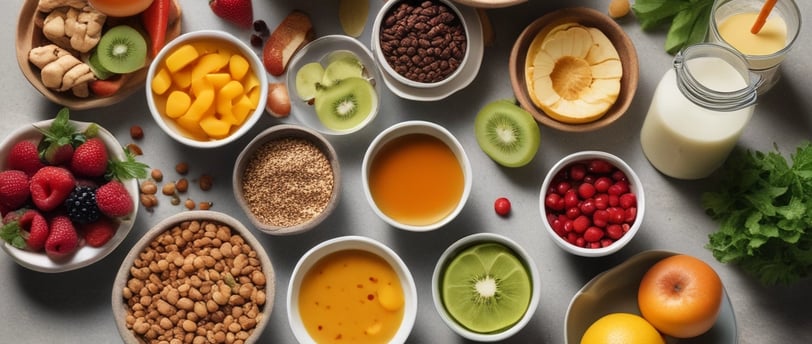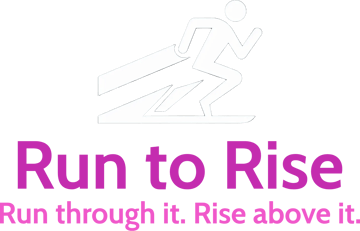Fueling Your Run: The 10 Best Foods to Boost Your Energy
5/28/20254 min ler


Energy-Boosting Foods for Runners
Proper nutrition plays a crucial role in enhancing running performance and sustaining energy levels throughout any run. The body requires a substantial amount of fuel to perform optimally, and this fuel comes from the foods consumed. For runners, selecting the right energy-boosting foods is essential not only for improving endurance but also for recovering effectively. Certain foods provide specific nutrients that are particularly beneficial for both short and long-distance running, helping athletes maintain stamina and improve overall performance.
The energy demands on the body during a run can vary greatly depending on the duration and the intensity of the exercise. Consequently, runners need to focus on consuming a balanced diet rich in carbohydrates, proteins, and healthy fats. Carbohydrates serve as the primary source of energy, quickly replenishing glycogen stores used during physical activity. Meanwhile, proteins assist in muscle recovery and repair, which is critical for those who engage in regular training. Healthy fats, though more calorie-dense, provide a sustainable energy source necessary for prolonged running sessions.
Moreover, incorporating specific nutrient-dense foods can further enhance performance and energy levels. Foods laden with vitamins, minerals, and antioxidants can help combat oxidative stress, a common consequence of intense physical exertion. This holistic approach to nutrition not only benefits the body during runs but also supports the overall health and well-being of runners. As we delve into the ten energy-boosting foods, it becomes apparent how these options can be an integral part of a runner’s diet, providing the fuel necessary to tackle various running challenges and achieve personal goals.
Whole Grains: The Cornerstone of Energy
Whole grains are an integral component of an athlete's diet, particularly for runners seeking to enhance their energy levels and endurance. Foods such as brown rice, quinoa, and oats serve as significant sources of complex carbohydrates, which are essential for fueling the body during prolonged physical activity. Unlike refined grains, whole grains retain their bran and germ, which are rich in nutrients and fiber, providing a more sustained energy release.
One of the primary advantages of consuming whole grains lies in their ability to offer a steady flow of energy, attributed to their lower glycemic index. This characteristic means that the carbohydrates are digested and absorbed more slowly, preventing spikes in blood sugar levels. Consequently, runners benefit from prolonged endurance, allowing them to perform optimally over longer distances without experiencing sharp drops in energy.
Additionally, whole grains are known for their positive impact on digestion, primarily due to their high fiber content. Fiber aids in promoting a healthy digestive system, which is vital for athletes who rely on efficient nutrient absorption to sustain energy levels. Improved digestion can lead to better overall health and wellbeing, making whole grains not only a fuel source but also a pivotal part of a runner's nutrition strategy.
Moreover, including a variety of whole grains in one’s diet can diversify the intake of essential vitamins and minerals. For instance, quinoa is not only a rich source of carbohydrates but also provides proteins and vital amino acids, making it a remarkable choice for runners. Similarly, oats are packed with antioxidants and other nutrients that contribute to an athlete’s overall health.
In summary, whole grains play a critical role in a runner's diet by supplying essential energy, improving digestion, and maintaining sustained performance throughout running sessions. Incorporating these nutrient-dense foods can provide the necessary support for endurance athletes aiming to maximize their potential.
Fruits and Vegetables: Nature's Energy Snacks
Incorporating fruits and vegetables into a runner’s diet is fundamental for maintaining energy levels and overall health. These natural food sources are rich in essential vitamins, minerals, and antioxidants, providing an excellent foundation for any athletic endeavor. Fruits and vegetables not only offer hydration but also aid in muscle recovery and energy replenishment, making them ideal for runners who require efficient fuel for their workouts.
Bananas, often regarded as a runner's best friend, are a standout option due to their high potassium content, which helps prevent muscle cramping during extended runs. The carbohydrates present in bananas are quickly digestible, providing a rapid energy boost. Sweet potatoes are another outstanding choice; they are rich in complex carbohydrates and offer a sustained energy release, making them perfect for pre-race meals. Additionally, sweet potatoes are loaded with beta-carotene, which supports immune function and overall health.
Leafy greens like spinach contribute significantly to a runner's diet as well. Spinach is not only calorie-efficient but also an excellent source of iron and magnesium. Both these minerals play crucial roles in energy production and muscle function. Furthermore, they contain a wide array of antioxidants that help reduce inflammation, promoting better recovery after strenuous activities.
It is essential for runners to consume a diversity of fruits and vegetables to ensure they receive a comprehensive array of nutrients. Including a variety of colors not only adds visual appeal but also signifies a range of health benefits. For instance, red and orange fruits like tomatoes and bell peppers are rich in lycopene and vitamin C, while blue and purple fruits like blueberries offer powerful antioxidants. By selecting an assortment of these vibrant foods, runners can optimize their nutrient intake, enhancing their energy levels and overall performance.
Proteins and Healthy Fats: Essential for Recovery and Energy
For runners, maintaining a balanced diet is crucial, and two key components that should not be overlooked are proteins and healthy fats. These nutrients play an integral role in muscle recovery, energy maintenance, and overall health. Protein is essential for repairing and building muscle tissues that endure stress during running. Foods rich in protein include lean meats, such as chicken and turkey, as well as fish and plant-based options like legumes, beans, and tofu. Additionally, dairy products like Greek yogurt and cottage cheese offer not only high protein content but also important calcium for bone health. Consuming these protein-rich foods helps runners recover more efficiently from their training sessions.
Healthy fats also have a significant impact on a runner's performance. Not only do they provide a long-lasting source of energy, but they also support crucial body functions, such as hormone production and nutrient absorption. Avocados, nuts, and seeds are excellent sources of healthy fats that should be incorporated into a runner's diet. For instance, the monounsaturated fats found in avocados can help reduce inflammation, which is essential after intense physical exertion. Nuts and seeds, such as almonds, walnuts, and chia seeds, also supply a wealth of nutrients, including antioxidants and omega-3 fatty acids, which further support recovery and enhance overall health.
When planning meals, runners should aim to integrate a balanced ratio of protein and healthy fats to optimize their performance. By focusing on these macronutrients, runners not only fortify their bodies against the rigors of training but also ensure sustained energy levels for both training and competition. In light of this, selecting the right kinds of protein and fats can significantly influence a runner's success and well-being.
Mindfulness
Explore motivation and movement for mental clarity.
Resilience
Running
contact@runtrise.com
© 2025. All rights reserved.
